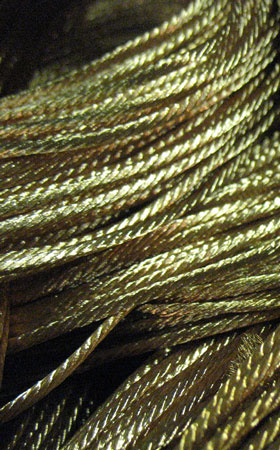 Cable theft costs South Africa about R5bn/year, and the “war on cable theft” is being intensified, police minister Nathi Mthethwa said on Tuesday.
Cable theft costs South Africa about R5bn/year, and the “war on cable theft” is being intensified, police minister Nathi Mthethwa said on Tuesday.
In written reply to a parliamentary question, he said training for designated “second-hand goods” police officers was currently underway.
This would ensure that police not only arrested those who broke the law, but also secured harsher convictions in court.
“Cable theft should be viewed as a serious crime which has potential to negatively impact our economic growth as a country. We cannot allow that, hence our declaration of war on izinyoka (cable thieves),” he said.
The incidents reported often involved theft from Spoornet of utility metres and cabling, theft of municipal metres and cabling, theft of cables and transformers from Eskom, as well as cases of theft of wire from private farms.
These cases were difficult to address unless the suspect was caught in the act or there were witnesses.
“However, there is now a closer scrutiny of second-hand metal dealers and intensified investigations by our detective division and, where applicable, the directorate for priority crime investigations, otherwise known as the Hawks,” Mthethwa said.
Among the measures currently being implemented by the SA Police Service to address cable theft, were crime prevention patrols and engagements with role-players through formal structures.
To this end, a non-ferrous metals committee had been established at national level involving both business and government departments.
In May this year, the Second-Hand Goods Act had come into effect.
In essence, the act stipulates that any person buying stolen goods, including cables, is as guilty as the person who stole the goods. If an unscrupulous dealer is found guilty, a court could impose a prison sentence of up to 10 years.
The act also makes specific provisions for accrediting the industry dealers and associations, and compliance monitoring. Stolen metals include copper cables, piping, bolts, and manhole covers.
Such theft continuously disrupted and degraded services, including the rail transport system, the power supply provided by Eskom, and Telkom’s telecommunication services, Mthethwa said.




